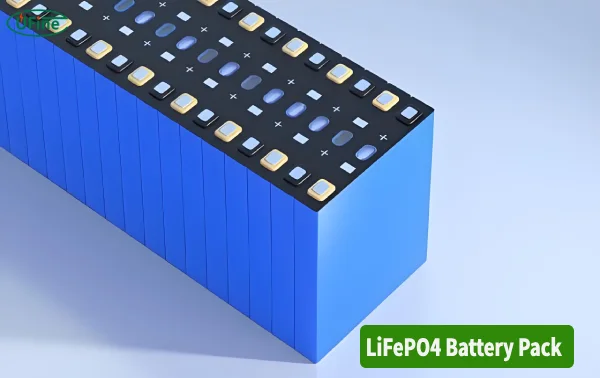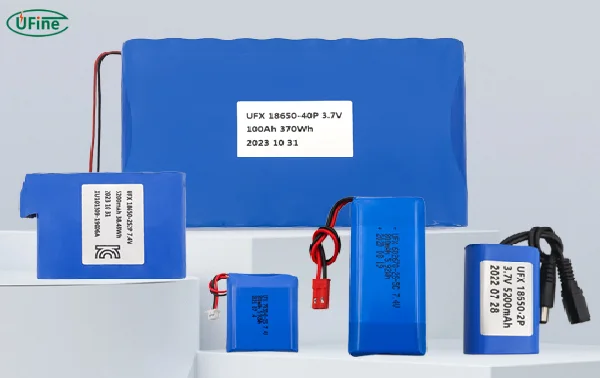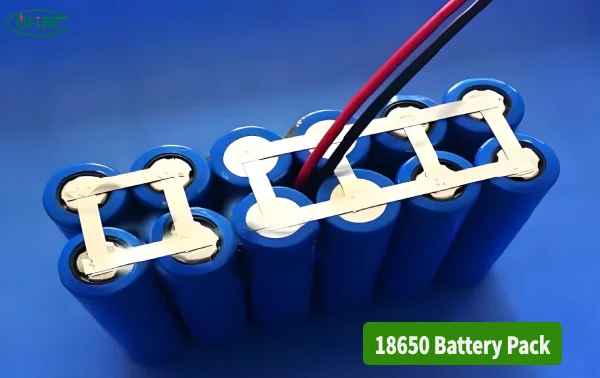Li-ion battery packs have revolutionized the way we power our devices. From the smartphone in your pocket to electric vehicles zipping down the highway, these batteries are everywhere. But why have they become so popular? What makes them tick, and how can you make the most out of them? In this article, we’ll explore everything you need to know about Li-ion battery packs. So, grab a cup of coffee, and let’s dive in!
Part 1. What is a li-Ion battery pack?
To start, let’s clarify what a Li-ion battery pack really is. Essentially, it’s a set of lithium-ion cells working together to provide a stable power source. Each cell is like a tiny powerhouse, storing and releasing energy as needed. When combined, these cells form a battery pack that can power anything from a small gadget to a large electric vehicle.
The magic of Li-ion batteries lies in their ability to store a lot of energy in a compact space. This high energy density makes them ideal for portable electronics, where size and weight are crucial. You’ll find them in laptops, smartphones, cameras, and more. But what’s going on inside these batteries? Let’s explore the chemistry.
Part 2. Chemistry
The chemistry of Li-ion batteries is pretty fascinating. These batteries rely on lithium ions moving between the anode and cathode during charging and discharging. The anode is typically made of graphite, while the cathode can be composed of various lithium compounds. This movement of ions is what stores and releases energy, providing power to your devices.
One of the key advantages of this chemistry is its efficiency. Li-ion batteries can store a lot of energy and release it quickly when needed. They also have a lower self-discharge rate compared to other battery types, meaning they hold their charge longer when not in use.
Part 3. Composition and structure
Now, let’s break down the composition and structure of a Li-ion battery pack. At the core, you have multiple cells connected in series or parallel, depending on the desired voltage and capacity. These cells are housed in a protective casing that shields them from physical damage and environmental factors.
A crucial component of the battery pack is the Battery Management System (BMS). The BMS monitors the battery’s health, ensuring it operates safely and efficiently. It manages the charge and discharge cycles, controls temperature, and prevents overcharging. Without a BMS, the battery pack would be prone to failures and safety hazards.
Part 4. Voltage and capacity
Voltage and capacity are fundamental characteristics of any battery pack. In Li-ion batteries, the voltage per cell usually ranges from 3.6V to 3.7V. By connecting cells in series, you can increase the overall voltage of the battery pack to meet specific needs. For example, a battery pack with four cells in series would have a nominal voltage of around 14.8V.
Capacity, on the other hand, is measured in milliamp-hours (mAh) or amp-hours (Ah) and indicates how much energy the battery can store. A higher capacity means longer runtimes between charges. This is particularly important in devices that require sustained power, like laptops or electric vehicles.
Part 5. Advantages and disadvantages
Li-ion battery packs come with a host of advantages. They are lightweight, have a high energy density, and offer a long cycle life. This makes them perfect for applications where space and weight are critical considerations.
However, they’re not without their drawbacks. Li-ion batteries can be sensitive to high temperatures and overcharging, which can lead to safety concerns such as fires or explosions. Proper care and the use of a reliable BMS can mitigate these risks, but it’s something to be aware of.
Part 6. 18650 battery pack
Let’s talk about the 18650 battery pack, a popular type of Li-ion battery. Named for its dimensions (18mm in diameter and 65mm in length), the 18650 battery is a cylindrical cell used in a variety of applications. You’ll find them in laptops, flashlights, power tools, and even electric vehicles.
The 18650 battery pack is favored for its reliability and performance. It offers a good balance of capacity and size, making it versatile for many devices. Plus, it has a proven track record, which gives manufacturers and consumers confidence in its use.
Part 7. LiFePO4 battery pack

Another interesting type of lithium battery is the LiFePO4 battery pack. These batteries use lithium iron phosphate as the cathode material, which gives them unique properties. They are known for their stability and safety, making them ideal for applications like solar energy systems and electric vehicles.
LiFePO4 batteries have a longer lifespan compared to other Li-ion batteries, and they’re less prone to overheating. This makes them a great choice for situations where safety and longevity are top priorities.
Part 8. How long do Li-ion battery packs last?
The lifespan of a Li-ion battery pack depends on several factors, such as usage patterns and maintenance. On average, these batteries last between 300 to 500 charge cycles. With proper care, you can extend their life and enjoy years of reliable power.
It’s important to note that frequent charging and high-drain usage can shorten a battery’s lifespan. However, by following good charging practices and avoiding extreme temperatures, you can maximize the battery’s longevity.
Part 9. Charging and maintenance tips
To keep your Li-ion battery pack in top condition, consider these charging and maintenance tips. First, avoid overcharging. Once the battery is fully charged, unplug it to prevent stress on the cells. Use a charger that’s compatible with your battery pack to ensure safe and efficient charging.
Store your batteries in a cool, dry place when not in use. Extreme temperatures can degrade their performance over time. Regularly check the battery for signs of wear or damage, and replace it if necessary.
Part 10. Custom li-ion battery pack
If you have specific power needs, a custom Li-ion battery pack might be the solution. Companies like Ufine specialize in creating customized batteries tailored to your requirements. They can adjust the shape, size, capacity, and voltage to fit your device perfectly.
With customizable options, you can ensure that your battery pack meets the exact demands of your application. Whether you need a unique size for a prototype or a specific capacity for a high-performance gadget, custom solutions offer flexibility and precision.
Part 11. Conclusion
Li-ion battery packs are an integral part of modern technology. Their high energy density, versatility, and efficiency make them a top choice for powering devices big and small. Whether you’re using an 18650 battery pack for your laptop or a LiFePO4 battery pack for an electric vehicle, understanding these batteries can help you make informed decisions.
And with companies like Ufine offering custom solutions, there’s a battery pack for every need. So, whether you’re an enthusiast or a professional, exploring the world of Li-ion battery packs opens up endless possibilities for innovation and convenience.
Related Tags:
More Articles

How to Choose the Best Floor Scrubber Battery for Commercial Cleaning?
Selecting the ideal floor scrubber battery ensures a long runtime, rapid charging, and minimal maintenance for efficient commercial cleaning operations.
Battery for Blower vs Battery for Leaf Vacuum: Which One Should You Choose?
Battery for blower vs leaf vacuum—learn the key differences in power, fit, and runtime to choose the right battery for your outdoor tool needs.
How to Choose the Right Battery for Blower?
Choosing the right blower battery? Consider voltage, capacity, chemistry & usage. This guide helps match the best battery for peak performance.
How to Choose the Best Insulated Battery Box for Lithium Batteries?
Choosing the Best Insulated Battery Box for Lithium Batteries? Discover key factors such as size, material, and safety for optimal protection and performance.
7 Critical Elements on a Lithium Battery Shipping Label
What must be on a lithium battery shipping label? Learn 7 key elements to ensure safety, legal compliance, and correct handling across all transport modes.





